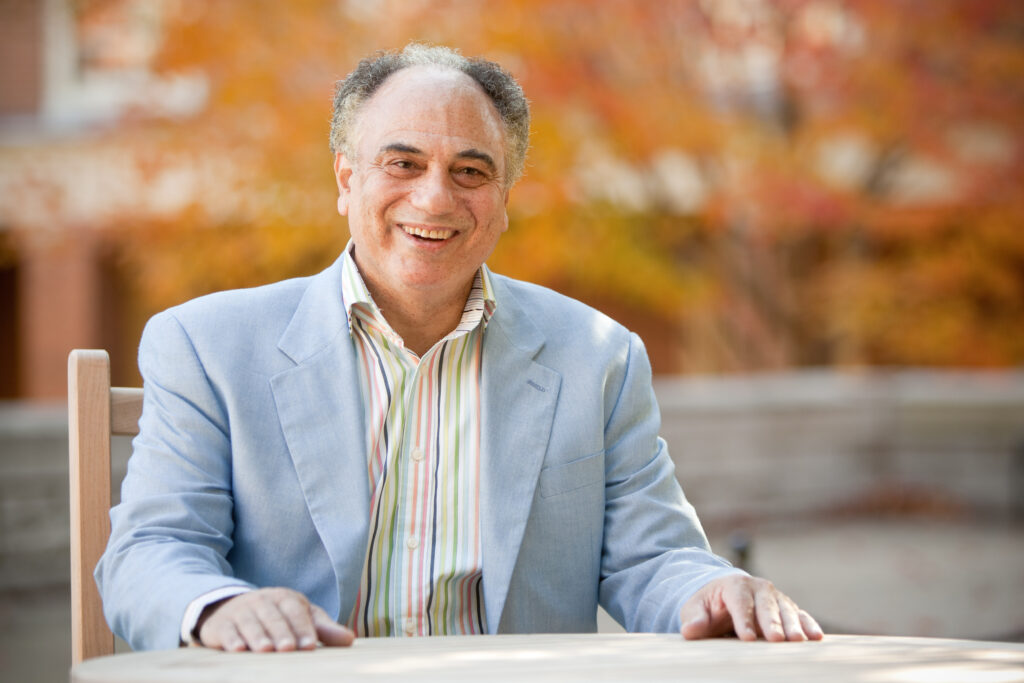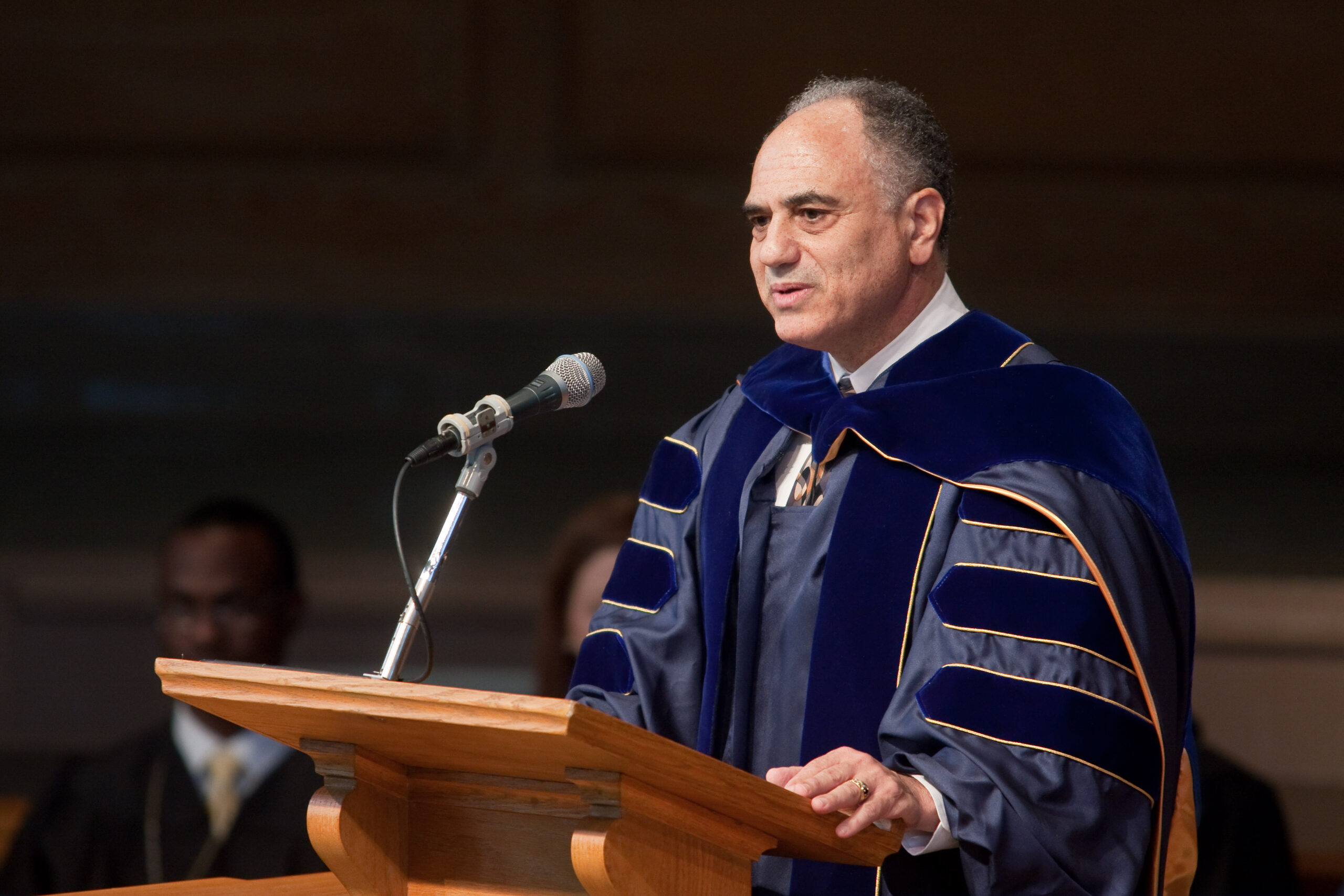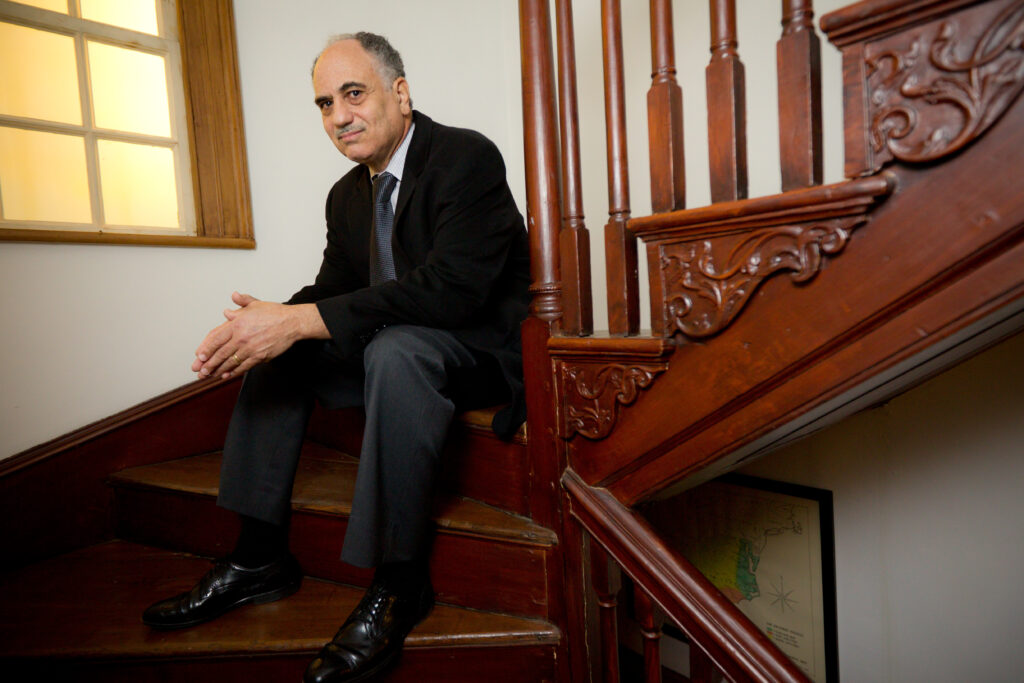Teacher-Scholar Legacies: Anthony Parent

By Rais Rahman, Chair of History

When I recently mentioned that my esteemed colleague and mentor Tony Parent is retiring at the end of this year, a faculty member from another department said something that helped me place better Tony’s contribution as one of the most valued, recognized, and respected colleagues across the College, University, and the larger community. This colleague said, “Tony is an institution by himself.” What could be a better way to capture a career that has spanned over 35 years with roles that have defined and touched various parts of Wake Forest University!
Tony Parent joined the Department of History in 1989 and has served as a distinguished teacher-scholar, leaving an indelible mark on campus, Winston-Salem community, and his area of expertise.
Since arriving at Wake Forest University, he has offered courses in African American history, race relations, the Atlantic world, slavery, black biographies, civil rights, and black consciousness movements, as well as the place of Africa in the world. His wide-ranging classes have intersected with various departments and programs, including American Ethnic Studies. African American Studies, and Cultural Heritage and Preservation Studies, exciting faculty and student interest in a variety of ways.
One of his most unique courses has been a team-taught seminar with Professor Emerita Dr. Ulrike Wiethaus of the Department for the Study of Religions on collective memory and identity of American Indian and African American communities and their response to historical trauma. I must add that Tony was one of the first on campus to start teaching courses in African American Studies, a field that is thriving now with much potential for further growth, thanks to the groundwork laid by those including Tony and the current leadership. His role in generating interest, mentoring students and scholars, and consistent advocacy for a more diverse, inclusive, and representative campus and discipline has been, may I say, foundational and critical.

As a scholar, Tony has a distinguished record of research in African American history, in particular the history of slavery and racism in Virginia and the South in the early modern era. One of his books Foul Means: The Formation of a Slave Society in Virginia, 1660-1740 (UNC Press, 2013) is a great example of engaging with slavery and the formation of slave societies that synthesizes decades of specialist research challenging the generally accepted belief that the introduction of racial slavery to America was an unplanned consequence of a scarce labor market. He has authored, edited, and co-edited three more books and multiple articles, and his two monographs have been nominated for book awards. What is remarkable is that as Tony nears his retirement, he has a highly active research agenda, a testament to which is that he is in the process of finalizing a book contract with a major university press, while he prepares to conduct archival research for another book as soon as the semester ends.
Tony has a distinguished record of meticulous and faithful service to the Department, the College, and the University. He has closely and with great interest and investment mentored several dozens of us. When I joined Wake Forest in 2008, I found that Tony was assigned as my official mentor, and he has continued to serve as my mentor, guide, and role model. Through my interactions with him all these years, I have found him to be extremely generous, kind, and humble as characteristic of his personality. Most people whose lives he may have touched would agree with this description. His generosity is further reflected in how he has dedicated himself to supporting his colleagues, helped define academic offerings, and shaped the Wake Forest University of today. I cannot help but mention the tremendous time and energy Tony dedicated to building the Liberal Studies Program as its longtime Director and defining the Lifelong Learning Program, of which he was the Founding Director.
As a teacher, students have found in Tony rock solid support, a wealth of knowledge, and a pathway to develop an enduring worldview that neatly fits into what we understand as the motto of the University – Pro Humanitate. Tony’s sagacious blending of his teaching and scholarship with his service is a rare feat. He has liberally lent his vast expertise and compassion to those around him in many ways, including in his role as a historian on the steering committee of the Slavery, Race, and Memory Project and on the advisory boards of local museums.
Personally, for me, Tony is a role model of what a conscientious member of Wake Forest community looks like. His sense of empathy, intellectual capacity, and unswerving commitment to Pro Humanitate is unparalleled. No doubt, students, faculty, and staff alike have always found in him a guide and mentor and he has enriched numerous round tables, panels, film screenings, and conversations, formal and informal, with his presence and participation. To many in the larger community, Tony has been the face of Wake Forest. Tony will be missed upon his retirement, but we will carry on his legacy.

